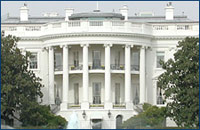 One of the principal things a new administration is going to have to address in the area of corporate law is how to encourage business managers to properly assess the long-term risks facing their businesses, and to manage those risks so that their businesses are sustainable in the long-term. The need for U.S. businesses, on which Americans rely for jobs as well as many basic goods and services (such as banking and insurance), to appreciate and guard against the long-term risks associated with their business activities should be evident from the current financial crisis, which stemmed in large part from financial institutions’ failure to appreciate and guard against the risks associated with the complex mortgage-backed securities and derivative instruments they held and the inevitable bursting of the housing bubble. As a consequence, Americans not only worry that their investments (including retirement and life savings accounts) held by these financial institutions might be at risk, but they also question the long-term stability of the U.S. economy.
One of the principal things a new administration is going to have to address in the area of corporate law is how to encourage business managers to properly assess the long-term risks facing their businesses, and to manage those risks so that their businesses are sustainable in the long-term. The need for U.S. businesses, on which Americans rely for jobs as well as many basic goods and services (such as banking and insurance), to appreciate and guard against the long-term risks associated with their business activities should be evident from the current financial crisis, which stemmed in large part from financial institutions’ failure to appreciate and guard against the risks associated with the complex mortgage-backed securities and derivative instruments they held and the inevitable bursting of the housing bubble. As a consequence, Americans not only worry that their investments (including retirement and life savings accounts) held by these financial institutions might be at risk, but they also question the long-term stability of the U.S. economy.
So what should a new administration do to make businesses better appreciate, and protect themselves from, the long-term risks associated with their businesses?
Congress is currently attempting to address this through regulating the executive compensation practices of financial institutions that take advantage of the Treasury’s purchase of troubled assets (such as mortgage-backed securities) under the Troubled Asset Relief Program (TARP) established under the Emergency Economic Stabilization Act of 2008. For example, these regulations prohibit the payment of compensation to top executives of financial institutions in which the Treasury obtains a meaningful debt or equity investment in connection with its purchase of troubled assets that rewards those executives for taking “unnecessary and excessive risks that threaten the value of the financial institution.” But in my view, this only addressed one of the symptoms of the ailment of excessive risk-taking, and only in one industry. To be sure, executive compensation practices are also a source of excessive risk taking, where executives are rewarded for the short-term benefits of their decisions notwithstanding their long-term value-destroying effects. But perhaps more importantly, the stock market encourages risk-taking by rewarding investors with profits from short-term stock price swings notwithstanding the long-term risks of the decisions that created those swings. Don’t get me wrong, I don’t blame investors for wanting to make profits. Earning profits through investments in successful business enterprises is at the core of our capitalist system. But our stock market should not encourage investors to make profits from short-term spikes in stock prices that are not lasting, much like executives should not be rewarded for making decisions that bring about those short-term spikes.
So how should the new administration go about fixing the problem?
Perhaps the new administration should send a clear message to state legislatures and courts (who regulate the internal affairs of the business organizations organized in their states) that business managers must, as part of their fiduciary duties to their investors, make decisions that are aimed at enhancing long-term enterprise value rather than short-term profits. (This is actually the subject of my forthcoming article.) The new administration should also consider how to encourage investors to invest in enterprises that create lasting value and societal wealth, rather than in enterprises that simply provide short-term returns to their profit-seeking investors (such as hedge funds). While some might view increased regulation in this area as dissonant with our system of capitalism, in my view, the goal would be to create a coherent and well thought out scheme of targeted regulations that could enhance how our capitalist system functions over the long-term.
The next President, members of Congress, and state legislators have a lot of work ahead of them to fix our corporate system so that U.S. businesses are encouraged to prosper and grow. But I believe doing so is critical if we want our economy to be among the strongest in the world.

Hello.
I like your site and wanted to know if you would be interested in exchanging blogroll links.
Thanks in advance